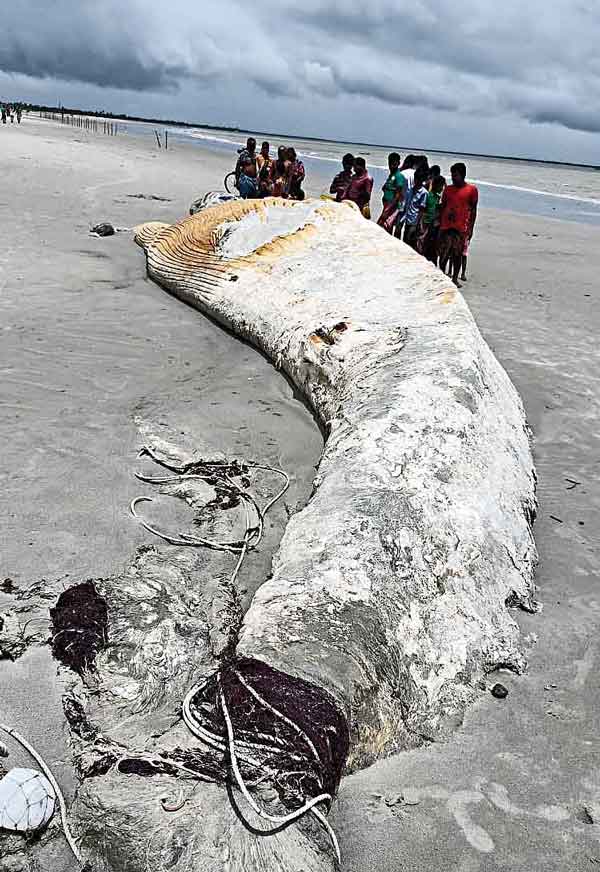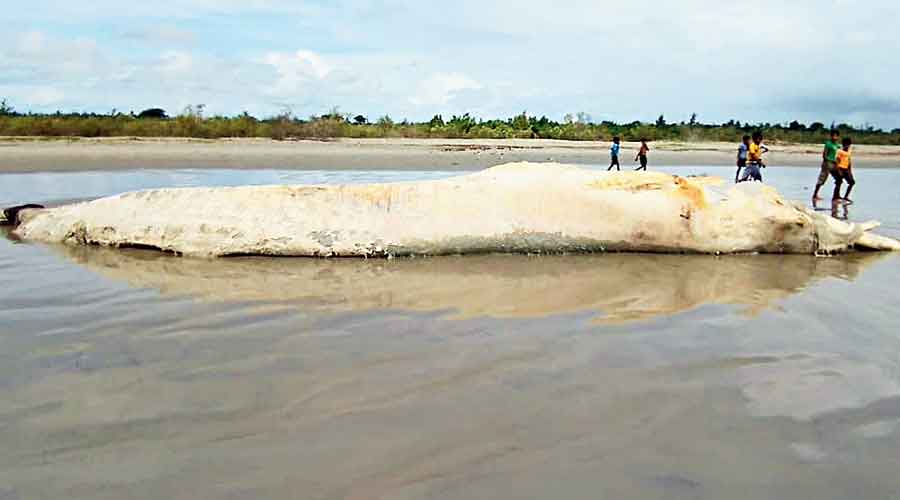The carcass of a whale, around 60ft long, was washed ashore at a beach near the southernmost tip of Bengal on Monday morning. An ecologist studying marine mammals who saw pictures sent by The Telegraph said the carcass could be of a blue whale, the largest animal on the planet.
The carcass, around 60ft long and over 20ft wide, was first spotted by residents of Loyolaganj, near Fraserganj in South 24-Parganas, a popular beach around 120km from Kolkata. What looked like a fishing net was entangled in its tail.
“The carcass was partly decomposed. It was lifted with a crane and buried under the sea shore,” said a forest official.
Milan Mandal, the divisional forest officer of South 24-Parganas, said his team members had collected samples from the corpse for a DNA test by the Zoological Survey of India.
This newspaper had sent pictures of the carcass to Dipani Sutaria, an ecologist studying marine cetaceans in India and associated with the Marine Mammal Research and Conservation Network of India.

Telegraph photo
“A female baleen whale, most likely. A Blue whale or an adult Brydes whale, based on the length of the carcass. The tail stock and fluke have a fishing net tied around them, suggesting death due to gear entanglement,” Sutaria said.
“The Bay of Bengal is known to have three species of baleen whales — Blue whales, Brydes whales and Omura’s whale.”
Baleen whales are a large family of whales which have baleen instead of teeth. The baleen is used to filter prey — like krill, plankton and small fish — from the seawater.
S. Balakrishnan, a marine biologist with the ZSI, said the carcass looked like that of a baleen whale. “Confirming the species from the pictures is difficult,” he said.
The carcass of a Brydes whale was washed ashore at the Mandarmani beach on June 29 last year. The skeleton of a male of the same species that was washed ashore in 2012 is preserved at Marine Aquarium and Regional Centre, Digha.
